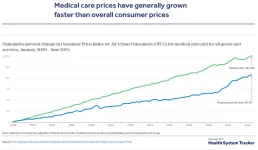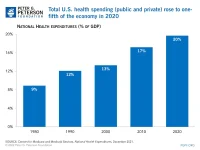- Joined
- Sep 6, 2019
- Messages
- 27,281
- Reaction score
- 30,194
- Gender
- Male
- Political Leaning
- Moderate
Individual market insurers requesting largest premium increases in more than 5 years - Peterson-KFF Health System Tracker
Early indications are that individual market insurers will be increasing premiums in 2026 by more than they have since 2018, the last time policy uncertainty contributed to sharp premium increases. Across 105 ACA Marketplace insurers in 20 markets (19 states and the District of Columbia)...
—
Insurers are hiking ACA premiums by a median of 15% next year, based on early reports. ACA enrollees will see their out-of-pocket premiums skyrocket by an average of over 75% if enhanced premium tax credits are allowed to expire at the end of this year.
—
Trump did that!





